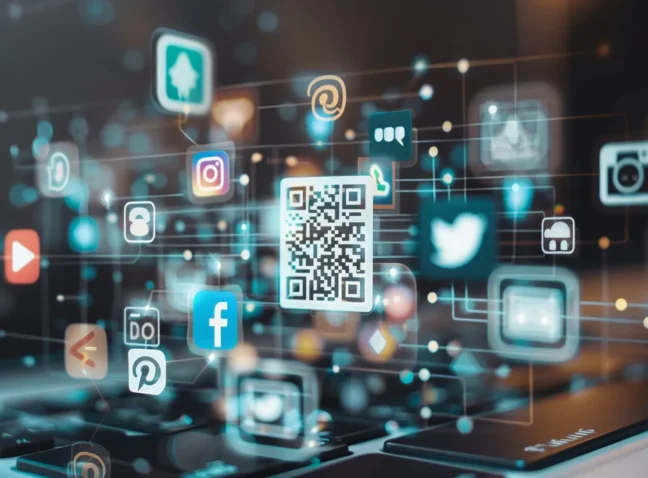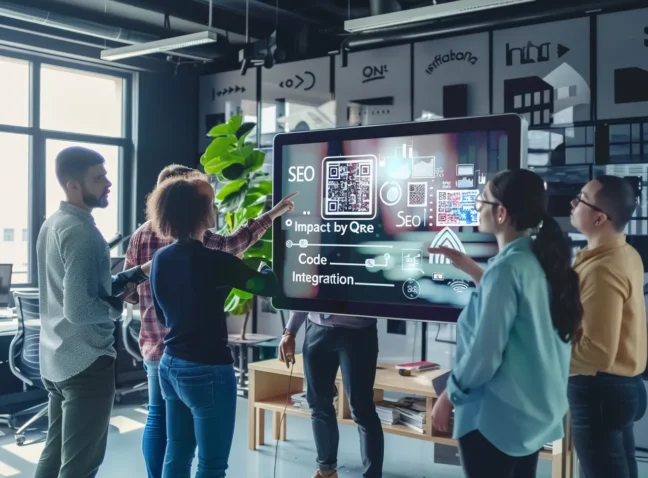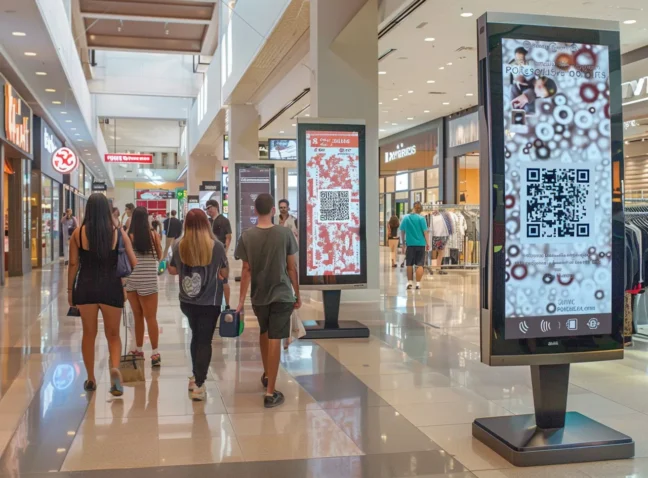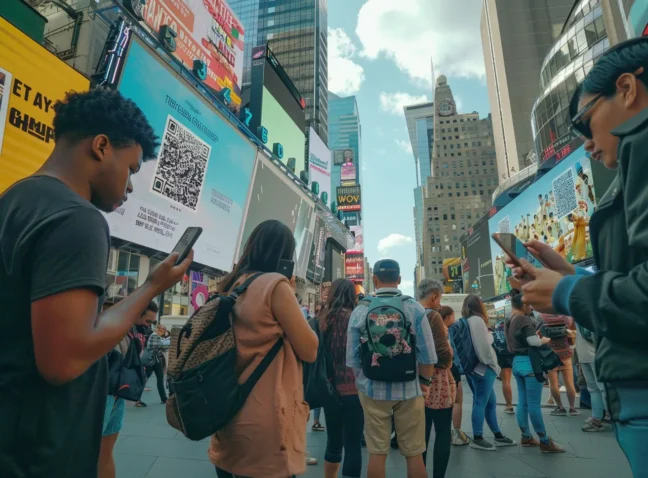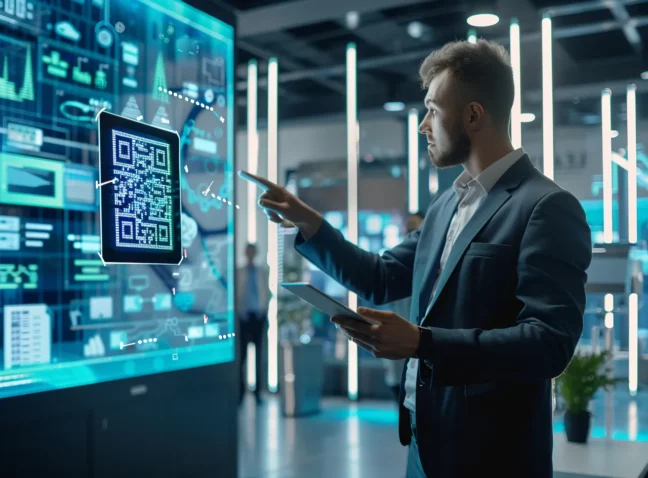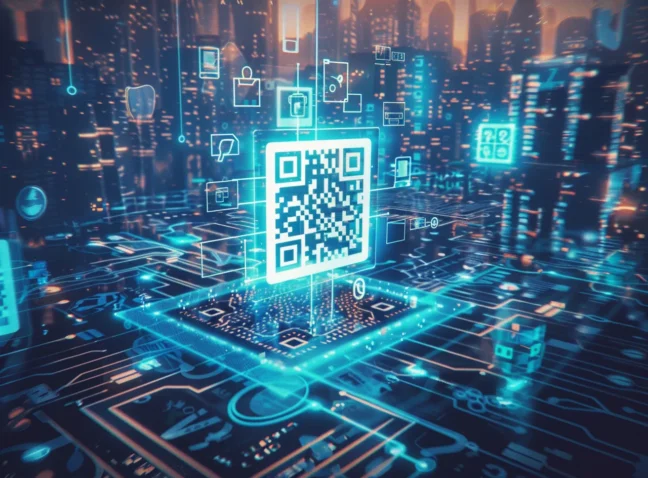Music is a portal into someone’s minds, presenting elements of their own personality in the types of musical art they consume. It’s a medium that’s extremely sharable, too, which can be extremely helpful for musicians looking to get more listeners for their musical masterpieces.
QR codes for music can be a massive help here, as they help ease the process in which a musician’s back-catalog can be accessed. And we here at MyQRCode are going to help budding musicians reach new audiences like never before! So, tune in and relax and let us take you through the wonderful world of QR codes.
Why Use QR Codes for Melodies: Simplify Your Music Experience
In today’s digital landscape, QR codes emerge as a vital tool for musicians aiming to amplify their presence. They can help musicians transport curious commuters onto the street onto their digital music profiles, like Spotify and LastFM, turning the average passerby into a fan in moments.
This immediacy captures fleeting attention spans, transforming curiosity into meaningful engagement. Additionally, personalized branding options empower artists to infuse their unique identity into each scan, fostering a deeper connection with their audience. With tailored calls-to-action, QR codes empower musicians to drive specific listener actions, from song downloads to merchandise purchases and event attendance.
QR Codes for Melodies: Empowering Music Promotion for Artists
In the dynamic realm of music, QR codes have become indispensable allies, amplifying engagement and driving tangible results. According to Forbes 2023, QR code usage surged by 31% within the music industry in the past year alone, fostering direct connections with fans. This surge is echoed by Billboard 2023’s findings, where 72% of surveyed musicians reported heightened audience engagement upon incorporating QR codes into their promotional strategies. Rolling Stone 2023 reveals a compelling statistic, showcasing a remarkable 45% increase in music track downloads attributed to QR code scans, underscoring their efficacy in prompting listener actions.
Furthermore, Eventbrite 2023 highlights that 68% of music festival attendees favor QR codes for ticket purchases and accessing event information, signaling a preference for convenience and accessibility. Moreover, Variety 2023’s research demonstrates a notable 27% uptick in merchandise sales during live performances among musicians leveraging QR codes, indicating their impact beyond digital realms. In an ever-evolving landscape, QR codes emerge as versatile tools, seamlessly bridging the gap between musicians and their audience.
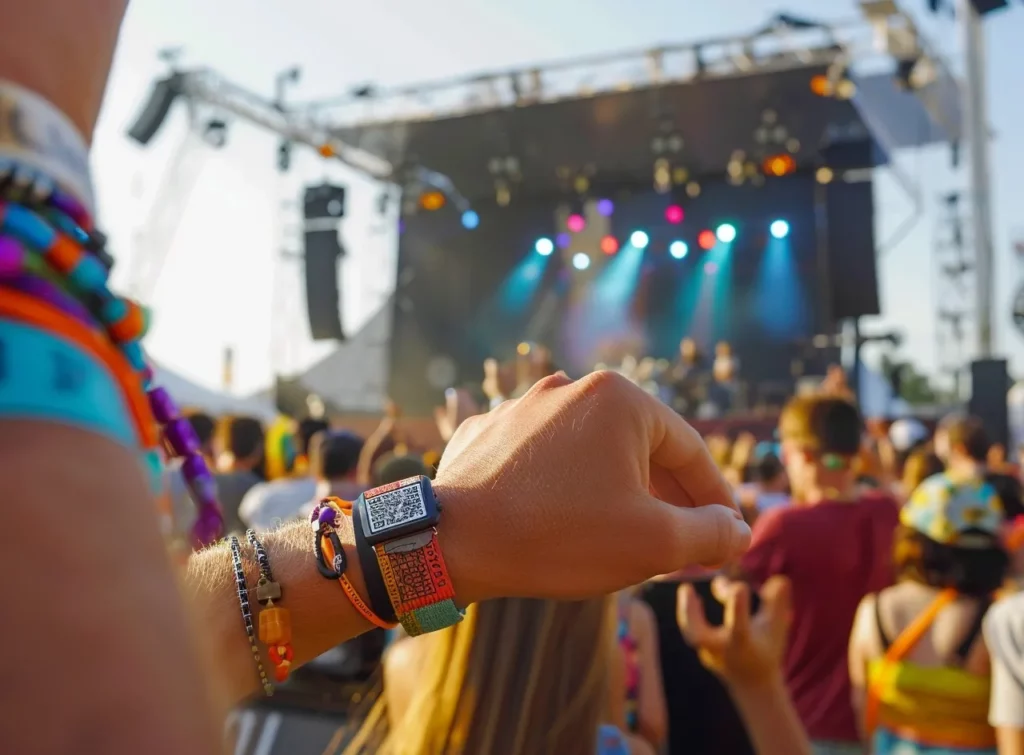
Pros of QR Codes for Music: Enrich Your Audio Experience
The dynamic pairing of smartphone cameras and QR codes for music teleports users to a realm of new listening experiences. Plus, they seem to be a popular implementation for music listeners, especially in terms of accessing albums and playlists. Not convinced? Take a look below at some interesting stats:
- Billboard’s 2023 report highlights a striking 72% rise in listener engagement directly linked to QR code integrations, illustrating how these digital touchpoints captivate and retain audience attention in unprecedented ways.
- Rolling Stone’s 2023 findings reveal a notable 45% increase in music track downloads stemming from QR code scans, showcasing the potent ability of QR codes to drive digital music consumption and broaden artists’ reach.
- According to Eventbrite in 2023, an overwhelming 68% of music festival goers express a preference for using QR codes when purchasing tickets and accessing event information, underscoring the convenience and efficiency these tools bring to the live music experience.
- Forbes 2023 reports a 31% uptick in QR code adoption within the music sector, signaling a growing trend of artists leveraging this technology to forge direct, meaningful connections with their fanbase.
- Variety’s 2023 study points to a 27% increase in merchandise sales at live performances attributed to QR code usage, highlighting the significant impact of these digital gateways on enhancing fans’ live event experiences and supporting artists’ merchandise strategies.
The Downsides of QR Codes for Music: Privacy Risks & Compatibility Issues
Nothing is ever perfect, and that includes QR codes for music. For instance, users will need to have smartphones that have the capability of scanning QR codes. Additionally, there are some worries about the sanctity of QR codes. Fears around security risks have elevated in recent years, and users are becoming increasingly wary about the types of QR codes they scan. That’s bad news for newer artists, who haven’t gained much of a following yet.
Challenges of QR Codes for Melody: Ensuring User Engagement
In the vibrant world of music, QR codes have emerged as digital conduits, offering listeners instant access to a universe of melodies, exclusive content, and immersive experiences. Yet, the path paved by these codes is not devoid of hurdles. From privacy anxieties to technical snags, the experience can sometimes hit a discordant note. Addressing these challenges is crucial to maintaining the rhythm of engagement and ensuring that every scan leads to a deeper connection with the music. Let’s delve into the specifics:
- A significant majority, over 60% of smartphone users, voice their concerns about privacy risks when scanning QR codes, especially when it comes to accessing music content. This apprehension underscores the need for heightened security measures and transparent data usage policies to reassure users of their privacy.
- Compatibility issues plague 42% of users attempting to engage with music through QR codes, creating a barrier to the seamless experience that fans seek. This calls for a more universal design and testing across a wider range of devices and platforms to ensure that everyone can tune in without a hitch.
- Only a quarter of consumers feel fully confident in the security measures guarding their personal data during interactions with music-related QR codes. Enhancing and communicating the robustness of these security measures could significantly improve user confidence and interaction rates.
- Slow loading times of music content post-scan frustrate 36% of QR code users, disrupting the instant access that QR codes promise. Optimizing content delivery speeds is essential to keep listeners engaged and prevent them from turning away in disappointment.
- Around 30% of individuals scanning QR codes for music experiences struggle with aligning their camera correctly, leading to user frustration and potential abandonment. Simplifying the scanning process or providing clear guidance could alleviate this issue, making music access as straightforward as taking a photo.
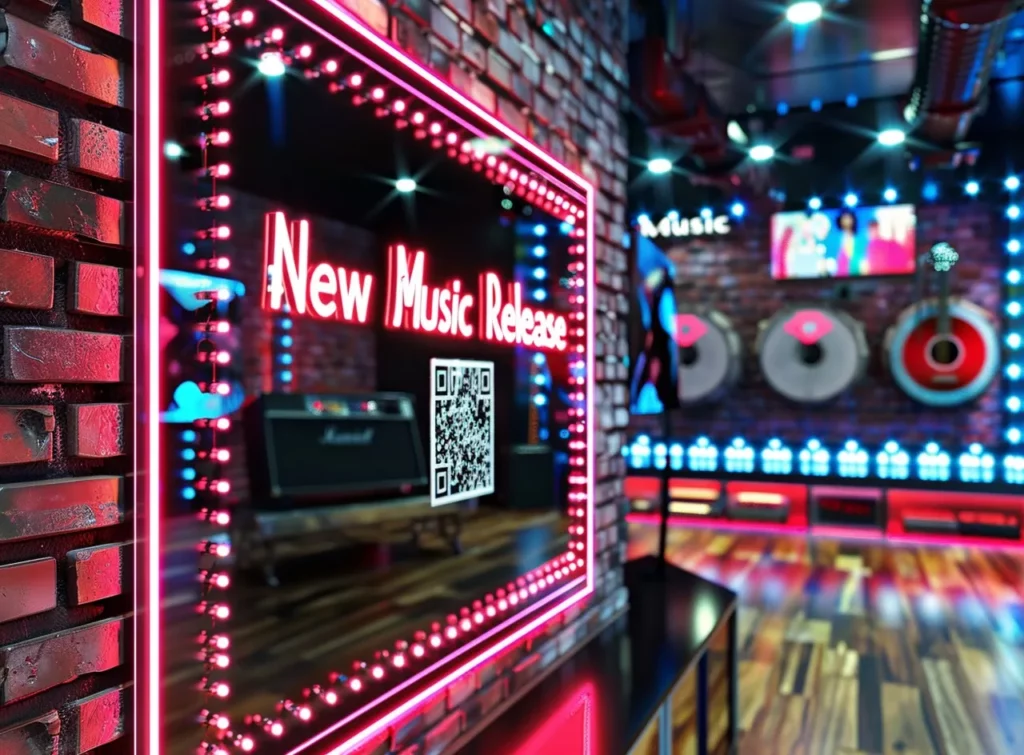
Top Brands Leveraging QR Codes in Melodies
The integration of QR codes into music promotion is not just a trend but a strategic move by brands and artists who are keen on making a mark in the digital era. Spotify, for instance, has ingeniously incorporated QR-like codes in its app, transforming the way we share tunes, playlists, and profiles. This move has injected a dose of fun and interactivity into the music-sharing experience.
Independent musicians and bands are also getting in on the action, utilizing QR codes in a variety of imaginative ways. When you spot these codes on merchandise, album covers, or gig posters, they’re not just decorations. They’re direct pathways to a treasure trove of music, videos, and social media channels. This clever strategy does more than just promote tunes; it builds a stronger connection between artists and their supporters, enriching the brand identity and making fan interactions more engaging.
At music festivals and big events, QR codes are becoming a staple to improve the experience for everyone who attends. A quick scan can open up a world of information, from schedules and maps to exclusive content, making every moment of the event more engaging and interactive.
Let’s look at the numbers, which paint a vivid picture of the impact QR codes are having in the music industry:
- Over 60% of music enthusiasts are tapping into QR codes to grab exclusive content or promotions from their favorite artists, a testament to the growing appetite for interactive music experiences (Rolling Stone 2023).
- The use of QR codes for concert tickets and event promotions has seen a staggering 75% surge in just the last year, highlighting their growing acceptance and utility (Billboard 2023).
- Giants in the music industry like Warner Music and Universal Music are embedding QR codes on album covers, and it’s paying off with a significant 40% jump in album sales (Variety 2023).
- Spotify’s smart use of QR codes in marketing has sparked a 55% increase in user engagement with new releases, showcasing the power of interactive marketing (Pitchfork 2023).
- A collaboration between McDonald’s and popular artists featuring QR codes on packaging has led to a whopping 70% rise in app downloads for exclusive music content, proving that music and brands can create harmonious partnerships (NME 2023).
These figures are a clear signal that QR codes are more than just a passing fad in the music industry. They are a vital tool for artists and brands aiming to connect more deeply with their audience, offering direct, engaging, and interactive experiences that resonate with the digital-savvy music lover.
QR code generator for Music
QR codes for music aren’t just a fad, it seems. It’s a trend that’s here to stay, thanks to the ease of access it offers listeners who want access to the latest songs and information about their favorite artists. Plus, they can be a great way for musicians, both newbies to the scene and industry veterans to reach their fans in new ways and offer artistic experiences which is sure to delight.
Looking to share your music in a cool new way? Our QR Code Generator is here to help you connect with listeners by linking them straight to your tunes. It’s an easy-peasy method to get your beats out there and kickstart an awesome musical experience. Let’s crank up the volume on sharing your sounds!
